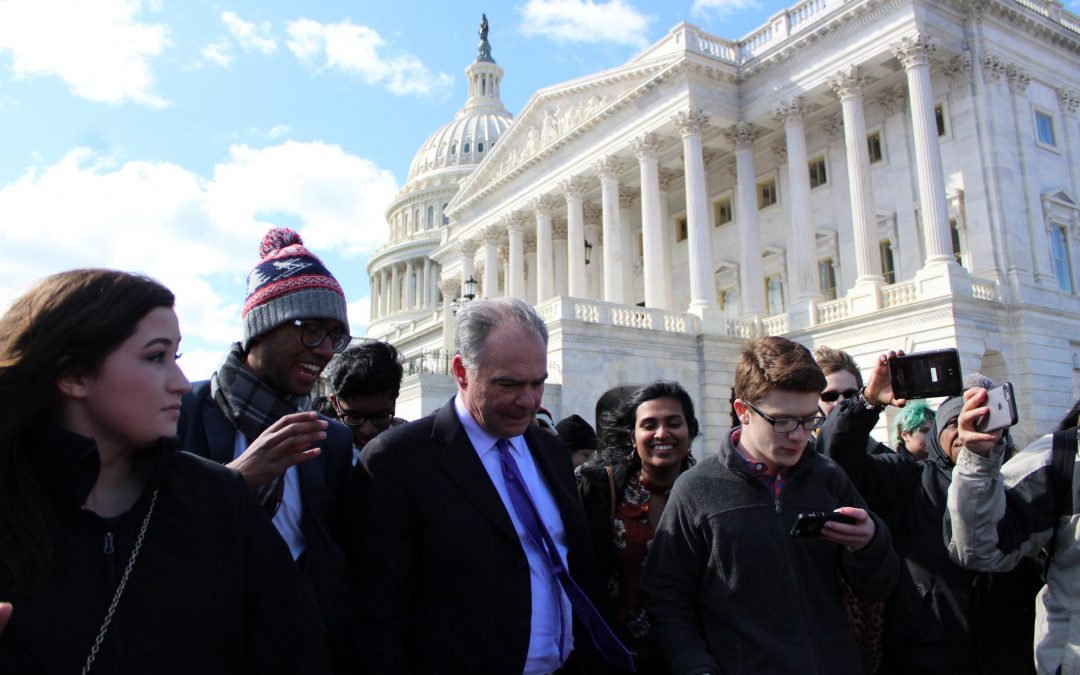WASHINGTON – Activists and lawmakers are calling on the United Nations to push for concrete changes in China’s treatment of Tibetans, Hong Kongers and the Muslim-minority Uyghurs after the global body released its universal periodic review, or UPR, of China on Tuesday.
The UPR is a regular review of each member-states’ human rights record, allowing nations to make recommendations and criticisms. Activists said they were glad to see 20 countries condemn China, calling the UPR a “turning point” for their cause because the region has lacked global attention.
The report specifically criticized the boarding school system in the Tibetan Autonomous Region of China, where Tibetan children are forced to attend residential boarding schools beginning at young ages to erase their Tibetan culture. Additionally, the countries called out China’s use of forced labor and suppression of Tibetans’ religious freedom.
“We condemn the ongoing genocide and crimes against humanity in Xinjiang; human rights abuses in Tibet, Inner Mongolia, and across China; erosion of respect for human rights and fundamental freedoms in Hong Kong; and transnational repression to silence individuals abroad,” U.S. Ambassador to the United Nations Michèle Taylor said in her statement in Geneva at the review.
Sen. Tim Kaine (D-Va.) told the Medill News Service that condemning China at the UPR is “important to do.”
Kaine said he would be “open” to supporting further legislation to protect vulnerable regions of China like Tibet. He added that he has been focusing his efforts by using military alliances to “check against Chinese aggression.”
Sen. Jeff Merkley (D-Ore.), co-chair of the Congressional-Executive Commission on China, said in a statement to the Medill News Service that the U.N. review “makes clear the global community must continue to put pressure on the People’s Republic of China.”
He also acknowledged Chinese officials’ denial of human rights abuses. China’s national report, submitted as part of the review, included claims that China upholds “the protection of human rights in accordance with the law” and “maintain[s] the equality of all persons before the law.”
Merkley recognized China’s claims as false. “Chinese authorities, instead of using this review as a chance to reckon with their actions and find a productive path forward, have doubled down and attempted to gaslight the global community by denying their violations and encouraging other countries to defend China,” Merkley said in his statement. “If the PRC wants to be respected on the world stage, it needs to prove that it is genuine in meeting its obligations under international law to uphold the universally-protected human rights of its people.”
Taylor and Tibetan activists also raised concerns about the U.N.’s inability to assess human rights violations within China due to the Chinese government’s tendency to block U.N. experts from entering the country.
Topjor Tsultrim, an activist from Students for a Free Tibet & Tibet Advocacy Coalition, said that there are at least 25 outstanding visit requests from U.N. officials that China has not allowed. Tsultrim and other activists argued that these visits are necessary to assess China’s oppression and are crucial to Tibet’s future.
“My parents, who themselves grew up in Tibetan refugee camps in India and watched as the U.N. and international community repeatedly failed to protect Tibetans against China’s violent invasion of Tibet, always told me the U.N. was useless,” Tsultrim said. “Since then, I’ve learned a more tailored criticism … the UPR is an opportunity for the international community by way of the United Nations to protect Tibetans inside Tibet by insisting on China’s cooperation.”
Ahead of the report’s release, a bipartisan group of senators – Sens. Marco Rubio (R-Fla.), Tim Kaine (D-Va.), Marsha Blackburn (R-Tenn.), and Jeff Merkley (D-Ore.) – signed a letter to Secretary of State Antony Blinken urging him to ensure the condemnation of China’s human rights violations at the UPR, specifically mentioning detained prisoners and peoples oppressed by China’s government.
“The United States must stand up for the principle of the universality of human rights and help hold the PRC accountable for its ignoring its obligations to respect human rights under international law,” the senators said in the letter.
Lhadon Tethong, co-founder and director of Tibet Action Institute, said she was happy to see Tibet at the forefront of nations’ priorities after many years of taking little action. “The U.S. has been leading on Tibet, at a time when Tibet was really being dropped by and not spoken about by many governments,” she said.
Tethong told the Medill News Service that the U.S. should continue working to partner with other governments to institute international sanctions. She said that limiting the travel of Chinese officials will help to hold them accountable for their oppression of Tibetans.
Tethong also recommended that the U.S.approach China’s human rights violations more holistically in the future, rather than playing a “game of Whac-a-Mole” and addressing each issue one by one.
“If we want to actually push for meaningful change on the ground, we do have to find a way to address the issues together, because they are interlinked,” Tethong said. “The international community can find ways to make sure that this isn’t just about raising one issue at one time and one at another time.”


